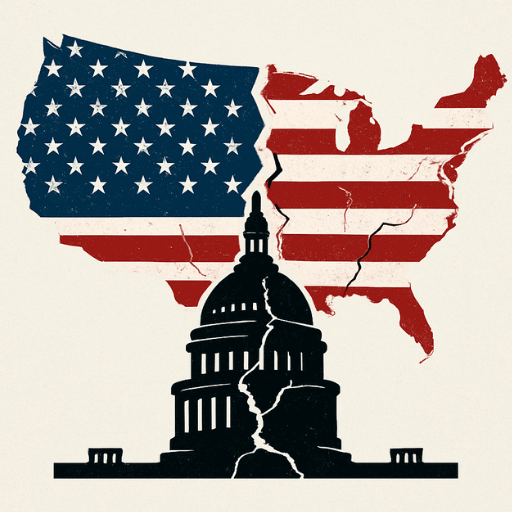Government Overreach: Analyzing the Trump Administration’s Actions Against Political Opponents
Introduction
The line between political dissent and criminal accusation is becoming dangerously thin. A seemingly benign social media post by former FBI Director James Comey interpreted by Trump allies as a coded assassination threat has exposed the increasingly authoritarian edge of the Trump administration’s approach to opposition. It raises disturbing questions about government overreach and the use of legal power to intimidate political rivals.
The Social Media Post That Sparked It All
Comey’s now deleted post showed a photo of shells on a beach with the caption “86/47.” To most, it was a cryptic reference. The number 47 could allude to Trump as the potential 47th president, and 86 is widely used slang meaning to remove or get rid of something. Yet Trump allies, most notably South Dakota Governor Kristi Noem, interpreted the post as a veiled threat an alleged call for violence against Trump.
The reaction was swift and calculated. Despite Comey’s clarification that the post was misunderstood and his immediate removal of it, the administration’s media surrogates amplified the interpretation as a death threat.
Misinterpretation as Political Strategy
The interpretation of “86” as a call for assassination is not only linguistically incorrect it is politically useful. This reframing of a cultural idiom into a criminal threat shows how political actors can twist language to justify punitive responses. Critics argue this is a deliberate tactic: create a narrative of victimhood, then use the power of the federal government to punish dissent.
The Legal Threshold for a Threat
To be classified as a criminal threat, a statement must be unequivocal and intended to incite violence. Legal experts broadly agree that Comey’s post does not meet this standard. Yet, by treating it as credible, Trump-aligned officials risk misusing federal investigative agencies like the Secret Service or Department of Homeland Security for political ends.
Oversight or Rubber Stamp?
One figure who should provide a check on overreach is Ed Martin, now head of a government commission on accountability. However, critics view his role as symbolic rather than substantive, designed more to shield the administration from criticism than to ensure transparency. If oversight bodies refuse to hold power to account, there’s little to prevent misuse of authority.
The Cost of Fighting the Government
For individuals targeted by federal claims even absurd ones the legal process is grueling. Unlike civil suits, fighting the federal government means dealing with unlimited resources, relentless scrutiny, and public vilification. Even a baseless investigation can ruin careers and silence dissent.
A Pattern of Government Overreach
This is not an isolated case. It fits into a broader trend where the legal system is deployed not for justice, but for vengeance. When political opponents fear speaking out due to legal retaliation, democracy suffers. It’s not about winning in court it’s about sending a message: dissent will be punished.
Conclusion
The Comey post episode is more than a misunderstanding it is a signal. If weaponizing misinterpretation becomes the norm, America risks becoming a place where speech is policed and opposition criminalized. As this case unfolds, civil society must stay vigilant and call out government overreach wherever it appears.






